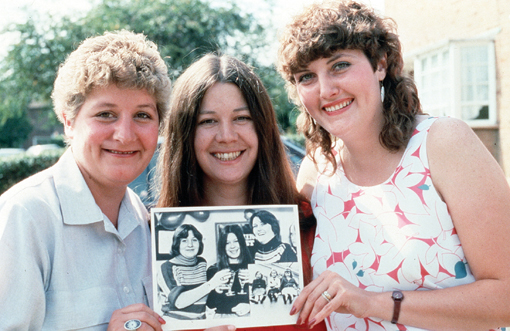Watching Seven Up
A fascination of the series is to observe through the stories of the protagonists the impact of the British school system or how the character of whole cities, the political landscape and aspects of British life, have changed over the forty-two years. In ‘49 UP’ for example Tony, now having a second home in Spain, talks about how the East End had changed and how in way Petticoat Lane has been re-created by British expats in Spain. Through its ‘characters’, the series is telling a part of British social history. Although the programme began as a political documentary, the series has become a film of human nature, capturing the drama of ordinary life.
Even if the films charts the growth of individuals, the reason for the first film holds true: while the rich kids are living the lives plotted for them, the majority the working class children have stayed rooted to their past. The exceptions are Tony, who now can be considered middle class, or Nick who migrated to America to become an university professor. Over the course of the project the programme had a direct effect on the lives of the participants, with three of them opting out from being interviewed any more. John refers to the programme as a poison pill that he is subjected to every seven years, and only agrees to get back in the hope that his contribution will draw support for his charity work in Bulgaria. 49 UP starts with Jackie confronting Apted on his style of questions, his assumptions about her life and his choice of editing. In fact the only life that isn’t laid bare in front of the viewer is that of the 15th character, the director Michael Apted, who became an established Hollywood feature director over the years; even though he is present as interviewer, we only hear his voice and he remains permanently off-screen.
The series is available now as a six DVD set from retail outlets, with an extended director’s talk with Apted on the SEVEN UP! and very insightful audio commentaries by producer Claire Lewis, film editor Kim Horton and cameraman George Jesse Turner on the 28 UP disc. A companion book published in 2007 in the BFI TV classics series, by Stella Bruzzi, Professor of Film and Television Studies at University of Warwick, is a very welcome and helpful sourcebook, telling the production history and situating the series within British Documentary History and it’s relation and influence on British Reality TV. Bruzzi interviewed not only several of the producer but as well two of the ‘children’ for this first comprehensive account of the iconic series.
The series is very valuable for teaching, in higher and secondary education, and particular subjects as media and television studies, British history, childhood studies, sociology and visual anthropology.
Susanne Hammacher
www.therai.org.uk/
On 8 May 2012 there will be a special screening at BAFTA in London of 56 Up, the new film in the series, followed by a Q&A with director Michel Apted. For further information, and details on booking, visit the BAFTA website at: www.bafta.org/
 Learning on Screen
Learning on Screen
